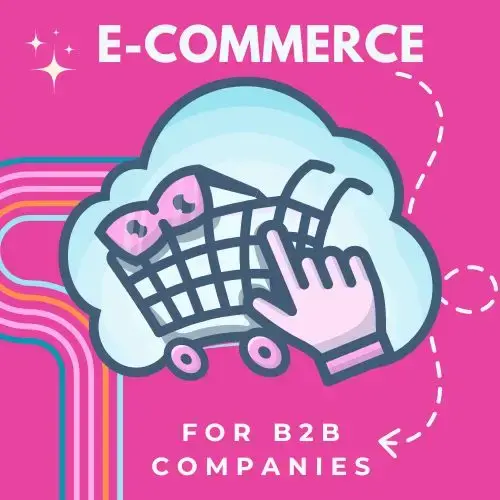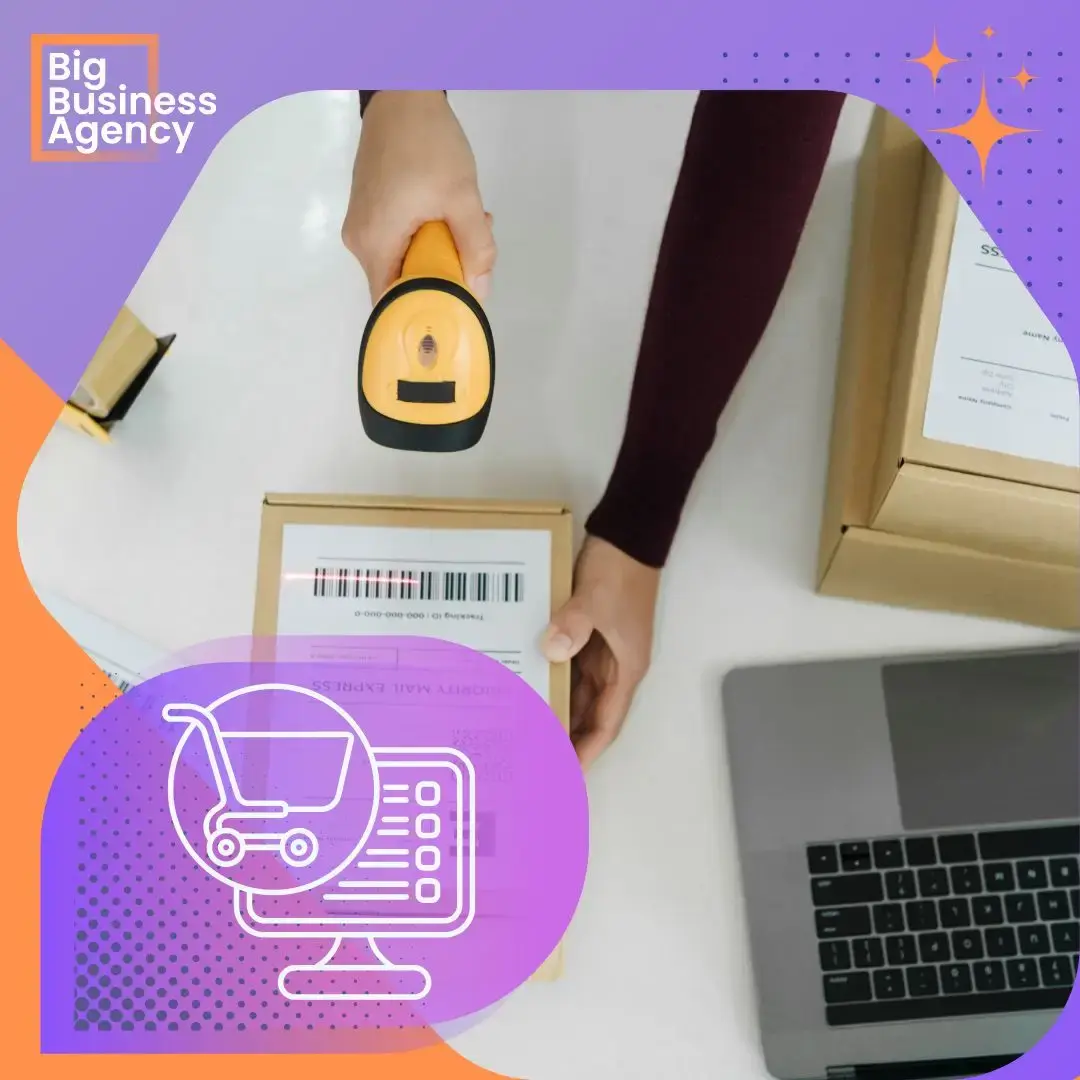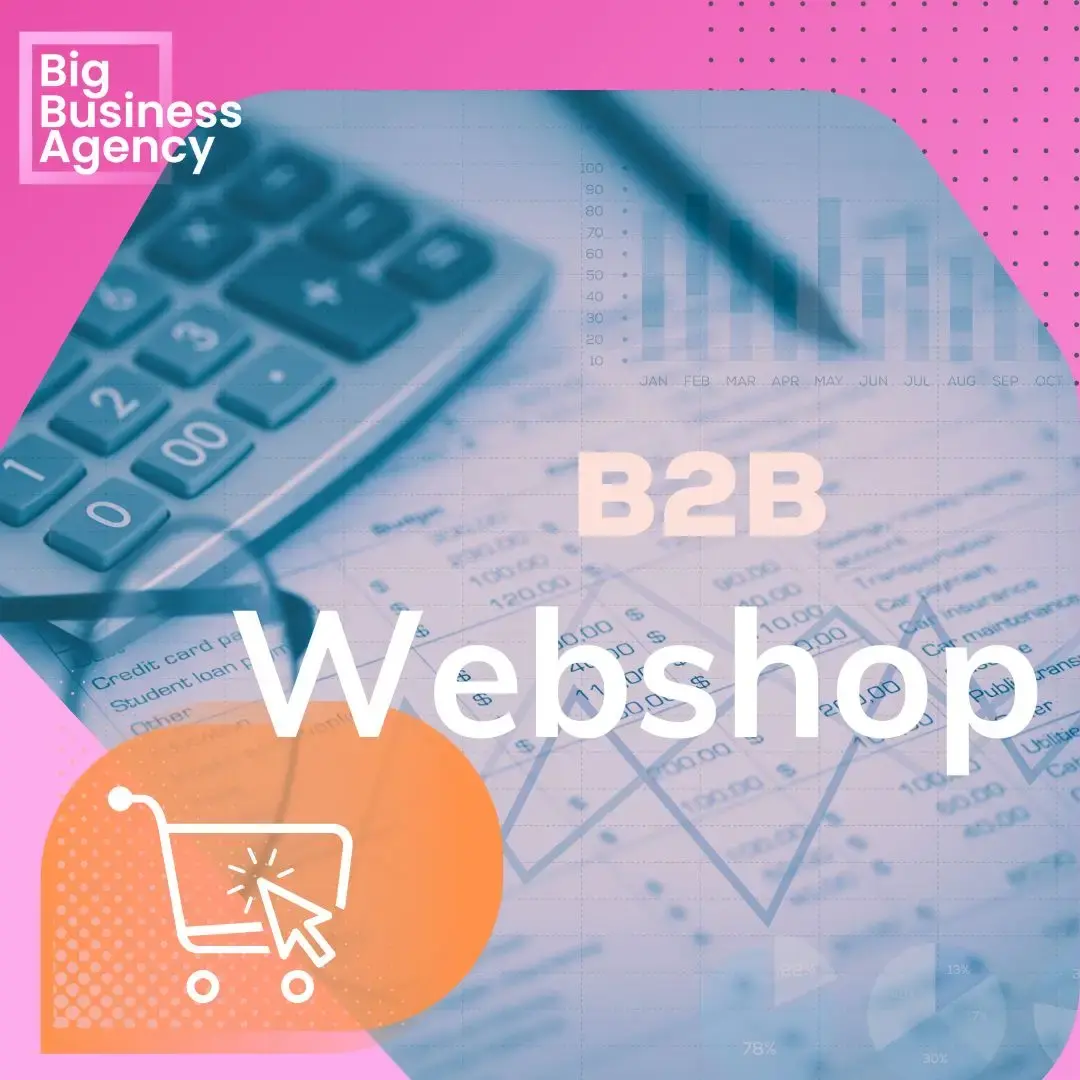Top B2B eCommerce Solutions
As B2B buyers continue to evolve integrated B2B eCommerce continues to be vital. In fact, the global B2B eCommerce market is projected to reach $20.9...
8 min read
Peter
:
Aug 13, 2024 1:23:06 PM

Digitising B2B contracted customers with an easy-to-use integrated eCommerce CRM can transform your business with simplified operations.
Imagine one source of truth for ALL Sales Orders and eliminating the constant grind of reconciling orders from multiple spreadsheets and systems, resulting in ONE sales and revenue report.
TABLE OF CONTENTS
B2B eCommerce is experiencing rapid growth to respond to customers' service expectations around self-service and instantly available order status. According to McKinsey around 65% of B2B companies have fully embraced digital channels as their primary method of conducting business.
It's no surprise that as demands evolve, so do the solutions, and hence the emergence of a Commerce Powered CRM — a dynamic fusion of a CRM system with embedded and robust B2B eCommerce capabilities.
This is a total game-changer in the way businesses handle customer interactions, sales processes, and data analytics. Let's get into what makes commerce powered CRM so revolutionary and how solutions like CommercePro are paving the path to success..
Gartner defines a digital commerce platform as the core technology that enables customers to purchase goods and services through an interactive and usually self-service experience. The platform provides necessary information for customers to make buying decisions and uses rules and data to present fully priced orders for payment.
Gartner lists the top eCommerce vendors, primarily aimed at B2C and, more recently, B2B, including Shopify (Shopify Plus), VTEX, SAP, Oracle and more.
These are corporate enterprise solutions like Salesforce in the CRM space, which serve the top end of town. And while they do that very well, what are your options when Enterprise Solutions aren't the right fit? Keep reading; we have some great news for you!
In the past, CRM systems were mainly focused on managing customer relationships, such as sales, customer service, and marketing activities. However, as the digital marketplace expanded, the importance of Commerce Powered CRM became clear. Businesses needed a more comprehensive understanding of their customer's journey, from the initial interaction to post-purchase support.
As a result, CRM eCommerce solutions emerged, integrating B2B eCommerce functionalities directly into CRM platforms to create a unified system for managing the entire customer experience.
eCommerce CRM is a system designed to streamline business operations by centralising customer orders, data and interactions. By capturing and analysing customer orders and information, eCommerce CRMs help businesses tailor their marketing efforts, improve customer service, and increase sales.
Integrating eCommerce into CRM systems gives businesses a holistic view of their customer base, fostering data-driven strategies that can lead to significant business growth.
The ability to adapt quickly and personalise the customer experience is crucial. eCommerce CRMs provide the tools necessary for businesses to keep pace with market trends and anticipate customer needs. This proactive approach to managing customer relationships sets successful online businesses apart, contributing to sustained growth and a loyal customer base.
eCommerce CRM is ideal for B2B organisations that have contract clients. Customers can place their order in their exclusive customer portal, which holds order history, delivery details, purchase agreements (eliminating the need for credit card purchases), SLAs, and price books, all enabled by flexible Configure. Price and Quote (CPQ). Invoices are generated as per your contracted terms and automatically routed as per the customers' accounts payable process.

Businesses can significantly enhance customer engagement by leveraging an eCommerce CRM's data consolidation and analysis capabilities based on Orders, Returns, Quotes, Delivery, Tickets and Satisfaction Surveys.
Personalised marketing campaigns based on customer behaviour and preferences ensure your messages resonate with your audience. This level of personalisation helps retain existing customers and attracts new ones, ultimately driving sales.
Furthermore, an eCommerce CRM streamlines sales by identifying upselling and cross-selling opportunities. The system's ability to provide real-time insights and recommendations enables sales teams to make informed decisions that positively impact the bottom line.
With an eCommerce CRM, businesses can foster a more responsive and customer-centric sales approach, which is essential for achieving long-term success in B2B industry sectors.
Integrating eCommerce capabilities in CRM systems offers numerous benefits, including:
Recognising the significance of eCommerce CRM integration, HubSpot, an award-winning, Tier One CRM platform, has joined forces with solutions like CommercePro to enhance its offerings. With CommercePro's integration inside with HubSpot, businesses can harness the complete potential of their CRM system within an eCommerce environment, driving success and efficiency in their operations.
This partnership equips businesses with a suite of resources to enhance their operations:
Commerce Powered CRM is at the forefront of revolutionising how businesses interact with their customers in the digital space. Through the seamless integration of eCommerce functionalities with traditional CRM systems, businesses can attain a holistic understanding of their customer journey, streamline operations, and drive sales growth.
Innovative solutions like CommercePro, in collaboration with platforms such as HubSpot, offer cutting-edge B2B eCommerce CRM solutions that meet customers' self service demands and simplify operations, reduce costs and increase efficiency.
As the digital landscape continues to evolve, the significance of commerce-powered CRM will only escalate, establishing it as an indispensable tool for any business aiming for success in the eCommerce domain.
The evolution of customer expectations, fuelled by seamless B2C online experiences, has led B2B customers to seek similar conveniences.
They desire the ability to transact online, access self-service options, and bypass the traditional salesperson whenever possible. Commerce powered CRM systems, especially those that integrate deeply with eCommerce platforms and payment systems, are perfectly poised to meet these needs.
By facilitating smoother and faster transactions, businesses that provide wholesale or supply parts for equipment, for example, can greatly benefit from allowing customers to self-service. This not only enhances the customer experience but also streamlines the sales process, making it more efficient for both the provider and the customer.
Any business aiming to minimise the friction involved in transacting with customers will find immense value in commerce powered CRM solutions. Integrating product selection, payment processing, and backend systems into one cohesive platform not only boosts conversion rates but also simplifies reconciliation processes.
With the majority of global invoicing still reliant on outdated methods like paper invoices, moving to an integrated CRM and commerce system can significantly reduce downstream friction, add certainty to revenue forecasts, and improve overall operational efficiency.
The delay between issuing invoices and receiving payments can hinder a business's cash flow and growth potential. Commerce powered CRM systems expedite this process by enabling electronic invoicing and direct payments, thereby ensuring that businesses get paid up to three times faster than traditional methods.
This acceleration of payment processing is crucial for maintaining healthy cash flow and supporting business expansion.
Businesses that operate on subscription-based models or manage recurring payments stand to benefit greatly from commerce powered CRM systems. These systems, equipped with modern payment collection tools like Stripe Billing, offer features such as automatic credit card updates and smart payment retries.
This not only reduces the manual effort required to maintain subscriber accounts but also ensures a steady and reliable revenue stream.
The push towards digital transformation is not limited to specific sectors. Businesses across a wide range of industries, including manufacturing, professional services, consulting, coaching, events, and even construction, can leverage a commerce-powered CRM to modernise their operations.
These systems effectively address the universal need to streamline processes, from customer acquisition through payment collection.
In addition to developing your growth strategy, leveraging technology and optimising processes to drive eCommerce expansion, prioritising the efficient operations and logistics of your online shopfront/customer portal is essential.
Equally important is focusing on customer acquisition and retention strategies to sustain and grow your business in the digital marketplace.

When considering the adoption of CRM software for your e-commerce platform, it's important to think about how well it can integrate with your existing infrastructure, how user-friendly it is, and its ability to grow with your business.
CRM solutions for e-commerce typically offer features like managing customer data, personalised marketing, automated workflows, and tracking customer service interactions.
|
Software |
Focus Area | Key Features | Best For |
|---|---|---|---|
| Salesforce Commerce Cloud | E-commerce and CRM | Unified commerce platform, AI-powered personalisation, customer journey management | Large enterprises and complex businesses |
| HubSpot | Inbound marketing and CRM | Marketing automation, sales pipeline management, customer service tools | SMBs to large businesses focusing on inbound marketing |
| Shopify CRM (Shopify Plus) | E-commerce platform | Integrated customer profiles, automation tools, extensive app ecosystem | E-commerce businesses of all sizes |
| Adobe Commerce | E-commerce and CRM | Customizable shopping experiences, inventory management, Adobe integration | Medium to large e-commerce businesses |
| Zoho CRM | CRM | Sales automation, marketing automation, artificial intelligence, analytics | SMBs to medium-sized enterprises |
| Thryv | Small business management | Online appointment booking, social media management, email marketing | Small businesses and local services |
| BigCommerce | E-commerce platform | Seamless integration with CRMs, customizable URLs, robust API | SMBs to large e-commerce platforms |
| Oracle NetSuite | ERP, CRM, and e-commerce | Unified business management suite, real-time analytics, scalable cloud solution | SMBs to large enterprises needing ERP solutions |
| Microsoft Dynamics 365 Commerce | CRM and ERP | Omnichannel commerce, personalised customer engagement, AI-driven insights | Medium to large businesses with complex operations |
| Pipedrive | Sales CRM | Sales pipeline management, activity reminders, customisable pipelines | SMBs focusing on sales management |
| ActiveCampaign | Customer experience automation | Email marketing, automation, CRM, messaging | SMBs to medium-sized businesses focusing on customer experience |
| Keap | Sales and marketing automation | Client management, email marketing, sales automation | Small businesses and entrepreneurs |
| Freshsales | CRM | Lead scoring, email tracking, sales pipeline management, AI-based insights | SMBs to enterprises focusing on sales efficiency |
| SAP Commerce Cloud | E-commerce and CRM | Omnichannel customer experience, product content management, order management | Large enterprises with global operations |
| Agile CRM | CRM, sales, marketing automation | Contact management, marketing automation, telephony and helpdesk | SMBs looking for an affordable CRM solution |
From Forrester research we know that 74% of B2B buyers now research at least half of their work purchases online. What's more interesting is the reported 53% of buyers complete those purchases online.
The transition towards integrated commerce and CRM solutions reflects the evolving business landscape, emphasising the importance of efficiency, customer satisfaction, and streamlined operations.
Tools like CommercePro, with its seamless integration with HubSpot, signify a significant progression for businesses ready to embrace the future of commerce.
For B2B companies looking to match B2C experiences, or service providers streamlining transactions, or subscription-based businesses seeking efficient payment solutions, commerce powered CRM systems provide the essential tools to excel in the digital marketplace of today.
CommercePro can reflect inventory levels using a simple CSV file upload or integrated into ERPs and Warehouse Management systems like Sage, Business Central, and SAP via integration tools like Magma, creating real-time inventory updates.
The result is three systems to run any business up to 250m:
1. ERP with WMS
2. HubSpot with CommercePro
3. Magma integration
CommercePro is embedded in HubSpot, which is an extremely flexible Website management tool.
This eliminates the need for WordPress and all the associated interfaces to B2B eCommerce functionality.
Yes. The fundamental business model underpinning CommercePro is based on complex B2B contracted relationships including:
1. Contracted volume-based pricing
2. Tailored experience for each customer including levels of subscription or access to events and content.
Each B2B eCommerce solution has two software requirements -HubSpot and CommercePro. Going Live with one single integrated Customer Portal has three elements:
1. Scope and Design—this maps your customer contrast, goods and services, price books, and contract structures to the software.
2. Implementation and training- The approved solution design is built and delivered, and staff are trained.
3. Project Management- including stakeholder, expectation, risk, dependency and assumption management with associated change management processes. PMP based on Prince2 PM techniques.
We can discuss the full project management plan at your convenience.
How can a CRM help my business?
Overview of an eCommerce Agency
Why your b2B business needs a webshop
Transform your business with cutting edge eCommerce solutions
Semrush: Top CRM tools for 2024
Top 10 Sales Metrics to Track in HubSpot

As B2B buyers continue to evolve integrated B2B eCommerce continues to be vital. In fact, the global B2B eCommerce market is projected to reach $20.9...

2 min read
"Online" has become the new normal, fundamentally transforming how we buy and sell. Unsurprisingly, eCommerce is growing so quickly in the B2B...